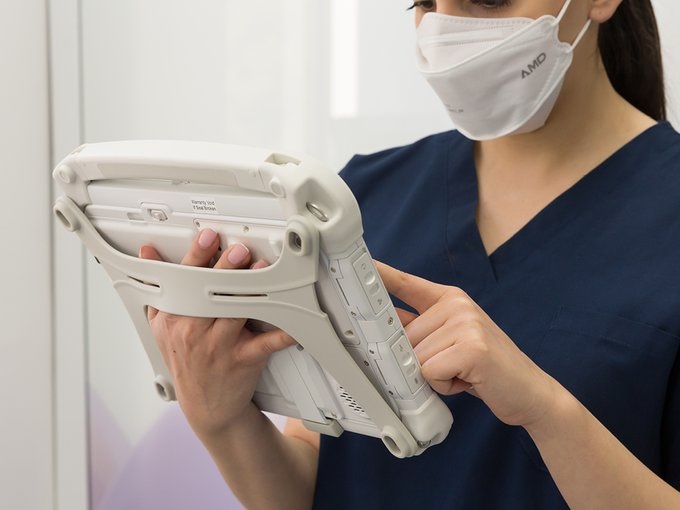
The healthcare industry is continually seeking ways to enhance patient care and improve operational efficiency. One significant area of focus is the workload of nurses, who play a crucial role in delivering high-quality healthcare. Balancing nurse workload is essential for ensuring optimal patient outcomes and preventing burnout. With the advent of medical tablets and advanced technologies, healthcare organizations have a powerful tool to streamline nursing workflows, promote real-time communication, and manage patient information efficiently.
Real-Time Updates and Streamlined Documentation
Medical tablets equipped with specialized software enable nurses to update patient charts in real-time. These mobile computers serve as a centralized hub for collecting and integrating information from multiple sources, including nurses, doctors, and emergency medical technicians (EMTs). This capability allows healthcare providers to access the most up-to-date patient data, ensuring accurate and timely decision-making.
With medical tablets, nurses can efficiently manage medication administration, doctor’s orders, documentation, assessments, and patient events. As documentation is completed, patient charts are instantly updated, eliminating the need for manual data entry, and reducing the risk of errors. This streamlined approach enhances patient safety and promotes collaboration among healthcare professionals, resulting in improved overall care quality.
Effective Workload Management
To provide the best possible care, it is crucial to ensure that nursing staff is appropriately allocated to meet patient needs. Medical tablets equipped with workload management systems offer valuable insights into nurse assignments and patient demands. By leveraging data-driven analytics, nurses can assess workload distribution and identify potential imbalances. These systems enable healthcare organizations to optimize nurse schedules and ensure adequate staffing levels, enhancing patient safety and the overall quality of care.
Integration with Existing Systems
Medical tablets designed for healthcare environments are equipped with built-in Wi-Fi and short and long-range wireless technology. These features allow seamless integration with existing healthcare systems, such as electronic health records (EHRs) and other hospital management software. By connecting medical tablets to enterprise Windows-based systems, nurses can access and update patient information securely. This integration enhances data interoperability, reduces administrative burdens, and enables efficient information exchange between healthcare providers.
Benefits and Future Implications
The adoption of medical tablets for nursing workload management offers numerous benefits. By leveraging real-time updates, streamlined documentation, and workload analytics, healthcare organizations can achieve improved patient outcomes, enhanced nurse satisfaction, and optimized resource allocation. These reliable tablets empower nurses to provide individualized patient care while reducing administrative tasks, allowing them to focus more on direct patient interaction.
Looking ahead, advancements in medical tablet technology hold great promise for the healthcare industry. Integration with artificial intelligence and machine learning algorithms can further optimize workload management by predicting patient demands, suggesting care plans, and identifying potential bottlenecks. Additionally, the development of intuitive user interfaces and voice recognition capabilities will enhance ease of use and further streamline nursing workflows.
Medical tablets have emerged as powerful tools for balancing nurse workload in healthcare settings. By enabling real-time updates to patient charts, streamlining documentation, facilitating workload management, and integrating with existing systems, these mobile computers enhance efficiency, collaboration, and patient safety. As technology continues to advance, medical tablets are set to revolutionize nursing workflows, empowering nurses and driving improved patient care outcomes. The future holds immense potential for further innovations in this field, promising a more equitable and efficient healthcare system for all.

